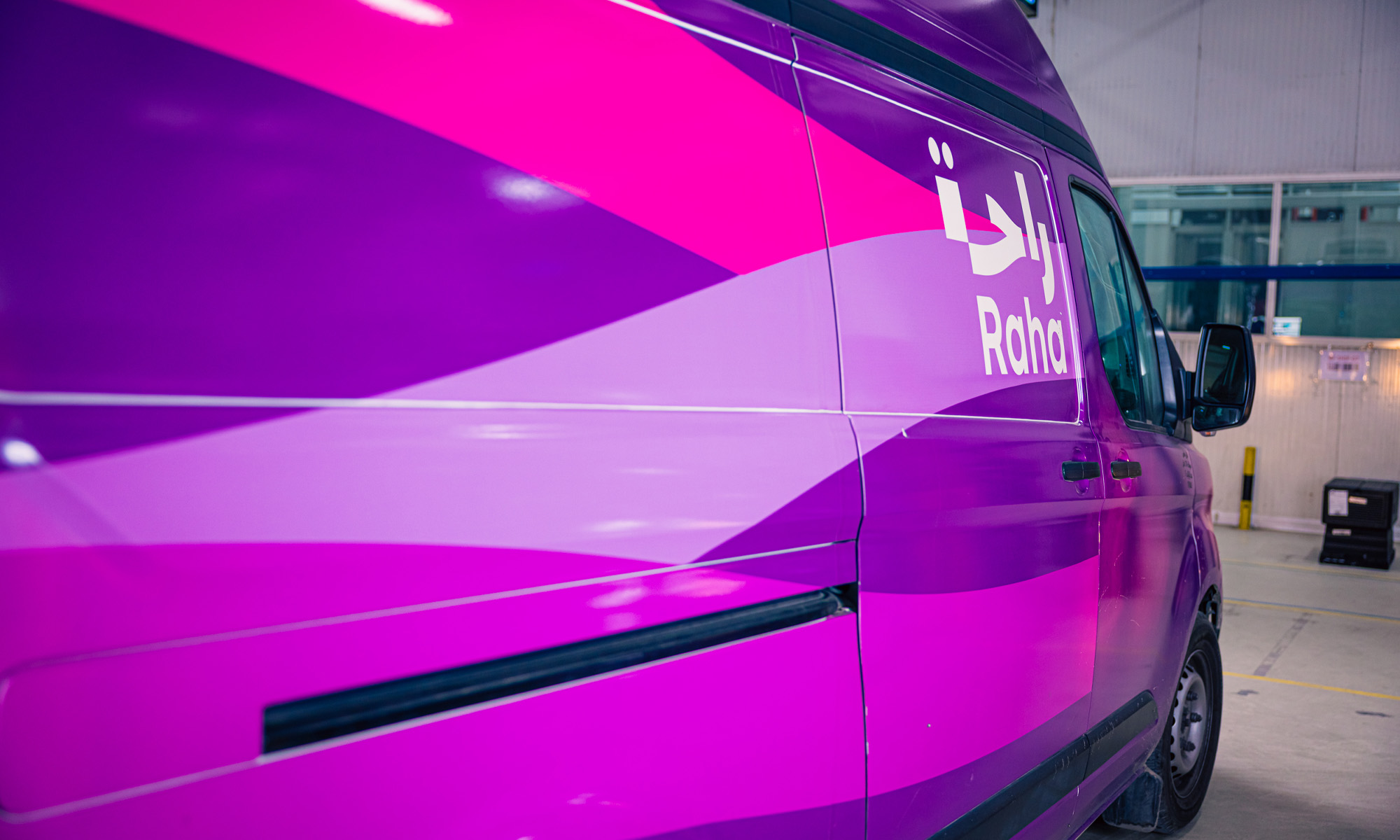News
Kuwait’s Raha Is An E-Grocery And Logistics Tech Startup
The company has already raised $7 million and plans to secure further funding to fuel GCC growth.

Launched in 2022, Raha, a Kuwaiti e-grocery and logistics startup founded by Saleh Al Tunaib, plans to disrupt the local food delivery sector using a mixture of advanced robotics and automation.
Raha offers a full range of fresh produce, groceries, and other household essentials. The company’s smart ordering platform leverages user data to provide a personalized experience, while a robot fulfillment team manages a mixture of products and made-to-order recipes inside Kuwait’s first fully automated distribution center.
Despite upfront costs, the robot-operated systems have better profitability margins from the third year onwards compared to conventional labor-intensive sorting and picking systems, Al Tunaib says: “it saves on manpower, it saves you the amount of real estate you require […] and it’s also very energy efficient”.
Saleh Al Tunaib began his career in Kuwait in 2010 and co-founded the crowdfunding platform Jaribha in 2011. By 2013, Al Tunaib was working at the OnCost Cash and Carry chain of grocery stores and had risen to the position of chief executive by 2016.
Also Read: Mobile Trends Shaping MENA In 2024
Due to changing habits in the wake of the pandemic, the MENA online grocery market is currently booming and was valued at $4.5 billion last year. The sector is forecast to grow massively by 2030, reaching a peak of $25 billion, according to consultancy firm RedSeer.
Since the launch, Raha has raised nearly $14 in seed funding and grown to become a multi-sector technology provider. The startup now has its sights firmly set on further GCC expansion.
News
Mamo Completes $3.4M Funding Round To Enhance Fintech Services
The startup will use the influx of cash to expand into Saudi Arabia and across the wider GCC while improving its product offering.

UAE-based fintech Mamo has announced the completion of a $3.4 million funding round that will help the startup extend its market presence and improve its product offering. Investors included 4DX Ventures, the Dubai Future District Fund and Cyfr Capital.
Mamo’s platform offers “payment collection, corporate cards and expense management” to help small and medium-sized businesses consolidate and streamline their operations. With the latest influx of capital, Mamo will further develop its comprehensive suite of services and begin testing its product lines in Saudi Arabia, further extending its footprint across the GCC.
Imad Gharazeddine, co-founder and CEO of Mamo, stated: “We’ve been in the market for a while now and are incredibly proud of what our team has achieved. The holistic and expansive nature of our product offering has helped us continue to grow sustainably. This additional funding will allow us to reach our medium-term goals even faster. The support from new and existing investors is a testament to our strong expertise and the ability to deliver on our customer promise”.
Daniel Marlo, General Partner of lead investor 4DX Ventures, added: “We have immense trust in Imad’s vision, leadership and Mamo’s innovative approach to provide a user-friendly and comprehensive financial solution for SMEs that makes financial management more accessible and efficient. We are proud to partner with them and support their mission”.
Also Read: A Guide To Digital Payment Methods In The Middle East
Amer Fatayer, Managing Director of Dubai Future District Fund’s investment team, also commented: “Mamo’s localized product lines serve as an infrastructure for SME payments and spend management in UAE, a segment that is underserved by the country’s current banking infrastructure. The team has taken a product-first approach to consolidating SMEs’ financial journeys and building a fintech solution deeply embedded in a business’s core operations”.
To date, Mamo has raised around $13 million in investment funding and now boasts a team of 30 people. The company’s intuitive financial services platform has allowed over 1,000 businesses to consolidate their financial operations and significantly reduce payment fees.
-

 News4 weeks ago
News4 weeks agoAmazon Prime Day 2024: Get Ready For 6 Days Of Amazing Deals
-

 News4 weeks ago
News4 weeks agoSamsung Unpacked 2024: What To Expect From The July 10 Event
-

 News4 weeks ago
News4 weeks agoCoursera Report Shows Surge In UAE Interest In AI Upskilling
-

 News4 weeks ago
News4 weeks agoMeet Dubai’s Groundbreaking Smart Robot Delivery Assistant















